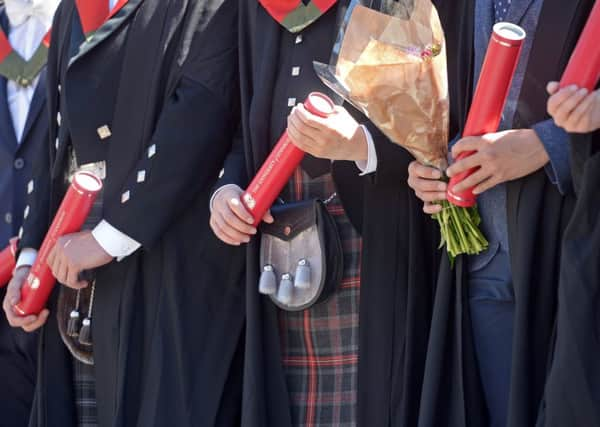Ellis Thorpe: University grants essential for working-class


In England we sat the 11-plus to determine if were we intelligent enough to cope with an academic grammar school education.
Being judged at eleven not to be suitable, I went to what was then the secondary modern school.
Advertisement
Hide AdAdvertisement
Hide AdHowever there was another route, the technical college which, again, we were selected for by examination at 12.
What now seems strange is that, according to our marks, we were graded as engineering, building or textiles for our educational pathways over the next three or four years.
Needless to say engineering didn’t really appeal to me at 12 – though later an extra year was offered to take the general certificate of education.
Not being at all technical, even though I was from a working-class background with a technically-skilled father, my results were abysmal – just two passes in English and History from six subjects like maths, technical drawing, woodwork and biology.
However, help was at hand. At 15 I became convinced that my life should be as a priest in the Anglican church and at 16 I went into a religious house.
There the education was ‘classical’ with Greek, Latin and Old Testament studies along with maths and English.
Seemingly these subjects suited me as I thrived intellectually until I left after 18 months.
I read a book by the philosopher Alasdair McIntyre called Marxism and Christianity – and I was captivated by Marxism, not Christianity.
Advertisement
Hide AdAdvertisement
Hide AdAfter National Service, my two GCEs were of little use in getting a job, but I managed to get a newspaper post as a copy-holder on nights.
It was there, when I was married with two young children, that it occurred to me to go back to school and get better qualifications.
My aim was to go to university so there was only one thing to do as I worked nights – go to school during the day for two days and take three Advanced GCEs. Three years later I went university to study social sciences with a special focus on economics, politics and sociology.
What must be borne in mind is that, with a wife and two children, without the funding available from the state I couldn’t have gone. The fees were paid and there was a relatively generous grant covering living expenses for the family.
This experience convinces me that this system of state-funded grants is indispensable and should be a key feature of a social democratic welfare state.
Without the grant there is no doubt that I, from a working-class family, would never have become a university lecturer.
Ellis Thorpe BA, MSc, is a retired Aberdeen University lecturer in Social Science.